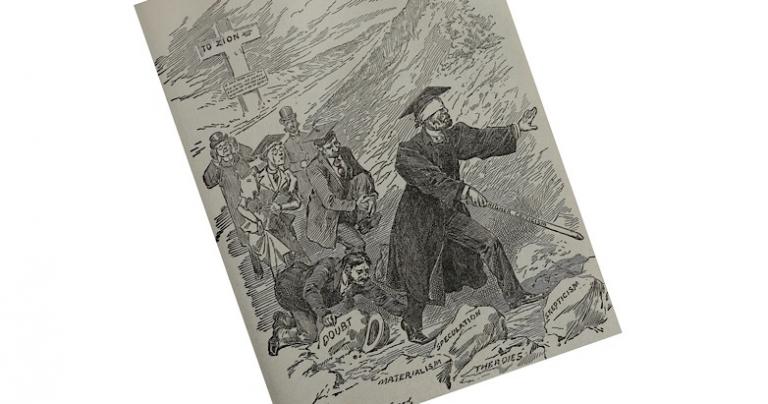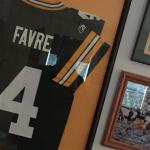 In some parts of American Christianity there is a weird belief that all forms of doubt are toxic. Thanks to good parents, I missed that error, though I made more than a few of my own!
In some parts of American Christianity there is a weird belief that all forms of doubt are toxic. Thanks to good parents, I missed that error, though I made more than a few of my own!
There are doubtless toxic ideas or practices covered by the very broad term doubt. Anyone who has ever taught Socratically has run into the student who did not read the book, but tries to get through class by doubting any positive thesis advanced by the harder working students. Other people make “not knowing” a virtue as if they would not wish to know for sure, even if they could. We should know all we can and act on our best evidence and reasoning.
“Doubt” can also stand in for rebellion against reason. This is the sneaky sort of pseudo-intellectual who turns away from the evidence and creates spurious doubts to avoid an obvious conclusion. I was once on a jury where the guilt of the client was beyond a reasonable doubt, but one juror pointed out that “space aliens might have created a duplicate” in the seconds the defendant was out of view of the police. The juror wanted the defendant innocent and took any doubt they could manufacture as a reason to vote “not guilty.”
This was unreasonable doubt that threatened to let a bad person go free.
There is an old image of a group of academics wondering away (wandering by wondering!) from the life giving Cross with their eyes covered tripping over doubts. Whatever the artist meant, I am fairly certain that these so-called academics are no more blindfolded than a stage magician, since somehow, improbably, diabolically, they all end up wandering away from the Cross. Atheists in academia like CS Lewis bump into Jesus and His work when they stumble over reasonable doubts regarding their atheism, so we know that “doubt” can take a person in both directions.
Doubt is a form of mental modesty: uncertainty to the extent uncertainty is warranted. Doubt so defined cannot be a vice and is a source of pleasure in life: I am uncertain about my Christmas treat from Hope and that is a good bit of the fun! Doubt is a positive life trait for finite beings and part of truthfulness. It is not just useful in a broken world: Adam had doubts (in one sense), before there was any sin. God brought the animals before Adam and the first human named those animals:
18 Then the Lord God said, ‘It is not good that the man should be alone; I will make him a helper as his partner.’ 19 So out of the ground the Lord God formed every animal of the field and every bird of the air, and brought them to the man to see what he would call them; and whatever the man called each living creature, that was its name. 20 The man gave names to all cattle, and to the birds of the air, and to every animal of the field; but for the man[c] there was not found a helper as his partner.
Adam got to look and wonder when he saw the animals: is this my completion?
“No. I think not.”
Adam remained in his incomplete situation. If this had continued, then it would have been bad, but it did not continue. The gap between finding mere animals, then seeing Eve, when he was feeling alone, and then finding completion is doubt: maybe this, no not this, but this! This wondering is wonderful when our uncertainty (or doubt) finds answers. These answers do not end doubt, they only change the nature of the questions.
We can reach reasonable certainty and this must have been easier in the world before sin. We can call that reasonable certainty knowledge and live by it. In fact, one way of using the term “faith” is a divine revelation to us that is indubitable. We see, so we know. Most humankind gets the fullness of this revelation when glorified after death, but the more God reveals Himself to us the less room we have to wonder if He exists. Our broken and limited capacity means that until we are fully healed this must be so. Even granting us perfect function, there is no reason to think revelation would end wonder (doubt in the sense I mean).
“Look! Bone of my bone!” is not the end of questions, but only the beginning of wonder. Ask any happily married person.
Doubt of this kind is useful in our broken world. When given reasons to doubt, a sensible person must doubt. He has been wrong too many times before now. We can start with a clear divine command: “Love your enemies.” and still make a mess of following that command: ask the Inquisition. When challenged, a good person must hold open the possibility that he or she has misunderstood. Probably is not nothing, but it is not certainty.
Truth does not change based on my uncertainty. Truth is still knowable even if I am, at the moment, uncertain. To pretend to certainty when I do not have it, is not only not a virtue, but a lie. Of course, to cultivate false doubts is also a lie. We must be honest and honesty in most areas will require epistemically modest attitudes.
“Have I mistaken my little idol for the true God?” maybe “yes” or “no,” but it is useful. A critic might reply: “But you confused a sad, but necessary tool for a virtue.”
No.
The same tool that keeps me from sin is part of coming to greater glory. “How is God’s love to be applied today?” I do not know, even if I know (to a reasonable doubt) many things I must not do. The day will be full of surprises. “Perhaps, this!” I pause and think. “Perhaps, not. I doubt it.” God then reveals Himself and love is applied to the changing conditions of life.
Such doubt, questioning what I think or suspect will happen, is wonderful. Isn’t this the very basis of the joys of scientific and other types of intellectual discovery? Humans delight to doubt their earlier ideas and God allows us this pleasure.
At the end of Republic Book I, Socrates has won his argument with an advocate for tyranny. That’s a good thing, but he had his doubts; a better thing. Socrates feared he had won, but by using bad arguments. He has been too hasty to define terms, too quick in his responses to care about clarity and precision. He was right to doubt and that right led to better things.
So may it be said of us all.
———————————————-
*I begin an informal summer reading of Republic using Scott/Sterling (a new translation for me). Part 1. Part 2. Part 3. Part 4. Part 5. Part 6. Part 7. Part 8. Part 9. Part 10. Part 11. Part 12. Part 13. Part 14. Part 15. Part 16. Part 17. Part 18. Part 19. Part 20. Part 21. Part 22. Part 23. Part 24. Part 25. Part 26. Part 27. Part 28. Part 29. Part 30. Part 31. Part 32. Part 33. Part 34. Part 35. Part 36. Part 37. Part 38. Part 39. Part 40. Part 41. Part 42. Part 43. Part 44. Part 45. Part 45.5. Part 46. Part 47. Part 48. Part 49. Part 50. Part 51. Part 52. Part 52.5. Part 53. Part 54. Part 55.












